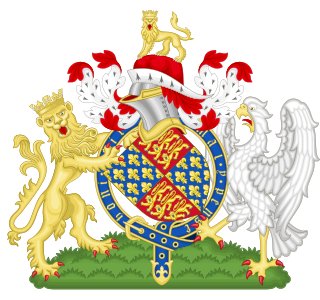Labour laws are those that mediate the relationship between workers, employing entities, trade unions, and the government. Collective labour law relates to the tripartite relationship between employee, employer, and union.

The National Labor Relations Act of 1935, also known as the Wagner Act, is a foundational statute of United States labor law that guarantees the right of private sector employees to organize into trade unions, engage in collective bargaining, and take collective action such as strikes. Central to the act was a ban on company unions. The act was written by Senator Robert F. Wagner, passed by the 74th United States Congress, and signed into law by President Franklin D. Roosevelt.
Employment is a relationship between two parties regulating the provision of paid labour services. Usually based on a contract, one party, the employer, which might be a corporation, a not-for-profit organization, a co-operative, or any other entity, pays the other, the employee, in return for carrying out assigned work. Employees work in return for wages, which can be paid on the basis of an hourly rate, by piecework or an annual salary, depending on the type of work an employee does, the prevailing conditions of the sector and the bargaining power between the parties. Employees in some sectors may receive gratuities, bonus payments or stock options. In some types of employment, employees may receive benefits in addition to payment. Benefits may include health insurance, housing, disability insurance. Employment is typically governed by employment laws, organisation or legal contracts.
In United States labor law, at-will employment is an employer's ability to dismiss an employee for any reason, and without warning, as long as the reason is not illegal. When an employee is acknowledged as being hired "at will", courts deny the employee any claim for loss resulting from the dismissal. The rule is justified by its proponents on the basis that an employee may be similarly entitled to leave their job without reason or warning. The practice is seen as unjust by those who view the employment relationship as characterized by inequality of bargaining power.

The Immigration Reform and Control Act was passed by the 99th United States Congress and signed into law by U.S. President Ronald Reagan on November 6, 1986.

The Statute of Labourers was a law created by the English Parliament under King Edward III in 1351 in response to a labour shortage, which aimed at regulating the labour force by prohibiting requesting or offering a wage higher than pre-Plague standards and limiting movement in search of better conditions. The popular narrative about its success and enforcement holds that it was poorly enforced and did not stop the rise in real wages. However, immediately after the Black Death, real wages did not rise, despite the labour shortage.
An employment contract or contract of employment is a kind of contract used in labour law to attribute rights and responsibilities between parties to a bargain. The contract is between an "employee" and an "employer". It has arisen out of the old master-servant law, used before the 20th century. Employment contracts relies on the concept of authority, in which the employee agrees to accept the authority of the employer and in exchange, the employer agrees to pay the employee a stated wage.

The Swing Riots were a widespread uprising in 1830 by agricultural workers in southern and eastern England in protest of agricultural mechanisation and harsh working conditions. It began with the destruction of threshing machines in the Elham Valley area of East Kent in the summer of 1830 and by early December had spread through the whole of southern England and East Anglia.
The duty of fair representation is incumbent upon Canadian and U.S. labor unions that are the exclusive bargaining representative of workers in a particular group. It is the obligation to represent all employees fairly, in good faith, and without discrimination.

Wage labour, usually referred to as paid work, paid employment, or paid labour, refers to the socioeconomic relationship between a worker and an employer in which the worker sells their labour power under a formal or informal employment contract. These transactions usually occur in a labour market where wages or salaries are market-determined.
The Ordinance of Labourers 1349 is often considered to be the start of English labour law. Specifically, it fixed wages and imposed price controls; required all those under the age of 60 to work; prohibited the enticing away of another's servants; and other terms.
Employment discrimination law in the United States derives from the common law, and is codified in numerous state, federal, and local laws. These laws prohibit discrimination based on certain characteristics or "protected categories." The United States Constitution also prohibits discrimination by federal and state governments against their public employees. Discrimination in the private sector is not directly constrained by the Constitution, but has become subject to a growing body of federal and state law, including the Title VII of the Civil Rights Act of 1964. Federal law prohibits discrimination in a number of areas, including recruiting, hiring, job evaluations, promotion policies, training, compensation and disciplinary action. State laws often extend protection to additional categories or employers.
Labour in India refers to employment in the economy of India. In 2020, there were around 476.67 million workers in India, the second largest after China. Out of which, agriculture industry consist of 41.19%, industry sector consist of 26.18% and service sector consist 32.33% of total labour force. Of these over 94 percent work in unincorporated, unorganised enterprises ranging from pushcart vendors to home-based diamond and gem polishing operations. The organised sector includes workers employed by the government, state-owned enterprises and private sector enterprises. In 2008, the organised sector employed 27.5 million workers, of which 17.3 million worked for government or government owned entities. The Human Rights Measurement Initiative finds that India is only doing 43.9% of what should be possible at its level of income for the right to work. Employees are routinely taken advantage of by their employers because of loose labour laws across all industries in India.

The Fair Labor Standards Act of 1938 29 U.S.C. § 203 (FLSA) is a United States labor law that creates the right to a minimum wage, and "time-and-a-half" overtime pay when people work over forty hours a week. It also prohibits employment of minors in "oppressive child labor". It applies to employees engaged in interstate commerce or employed by an enterprise engaged in commerce or in the production of goods for commerce, unless the employer can claim an exemption from coverage. The Act was enacted by the 75th Congress and signed into law by President Franklin D. Roosevelt in 1938.
The History of labour law in the United Kingdom concerns the development of UK labour law, from its roots in Roman and medieval times in the British Isles up to the present. Before the Industrial Revolution and the introduction of mechanised manufacture, regulation of workplace relations was based on status, rather than contract or mediation through a system of trade unions. Serfdom was the prevailing status of the mass of people, except where artisans in towns could gain a measure of self-regulation through guilds. In 1740 save for the fly-shuttle the loom was as it had been since weaving had begun. The law of the land was, under the Act of Apprentices 1563, that wages in each district should be assessed by Justices of the Peace. From the middle of the 19th century, through Acts such as the Master and Servant Act 1867 and the Employers and Workmen Act 1875, there became growing recognition that greater protection was needed to promote the health and safety of workers, as well as preventing unfair practices in wage contracts.
Lemmerman v. A.T. Williams Oil Co., 318 N.C. 577, 350 S.E.2d 83 (1986), was a case before the Supreme Court of North Carolina, which hinged on the question of whether the plaintiff met the definition as an "employee" of the A.T. Williams Oil Co. under the state's Workers' Compensation Act.

The Wage and Hour Division (WHD) of the United States Department of Labor is the federal office responsible for enforcing federal labor laws. The Division was formed with the enactment of the Fair Labor Standards Act of 1938. The Wage and Hour mission is to promote and achieve compliance with labor standards to protect and enhance the welfare of the Nation's workforce. WHD protects over 144 million workers in more than 9.8 million establishments throughout the United States and its territories. The Wage and Hour Division enforces over 13 laws, most notably the Fair Labor Standards Act and the Family Medical Leave Act. In FY18, WHD recovered $304,000,000 in back wages for over 240,000 workers and followed up FY19, with a record-breaking $322,000,000 for over 300,000 workers.
Dudsday, also Duds' day, or Dud's day was a hiring fair, a holiday, held at Kilmarnock in East Ayrshire, Scotland. Originally held at Martinmas that falls on November 11 it was later also held at Whitsun. At this fair farm labourers would be hired.
Labour hire is a form of employment in which an employer directs their de jure employees to perform work at an external workplace, belonging to a client of the legal employer.

The Statutes Fair is an amusements fair held in Burton upon Trent, Staffordshire in England. It is held annually on the first Monday and Tuesday after Michaelmas. The fair has been held since 1219 but, despite its name, no statute allowing for it has been found. The event was originally a hiring fair, with employers giving a symbolic shilling to employees contracted for the following year. Amusement stalls began as a means of persuading the employees to spend their shillings. The event is now entirely an amusements fair. It has survived several attempts at abolition and ran, in a reduced form, through the Second World War and COVID-19 pandemic.










